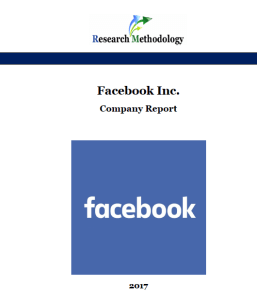Posts Tagged ‘social media’

Facebook Inc. leadership is headed by its founder Mark Zuckerberg in the position of CEO and Chairman of the Board. Despite his relatively younger age among CEOs, Mr. Zuckerberg is renowned for his visionary leadership style and he is justly credited for the impressive growth rate of the company since it was founded in 2004. Mr. Zuckerberg’s initial business card read “I’m CEO, Bitch.” reflecting his aggressive leadership style at the earliest stages of business development. Moreover, named as one of the most influential personalities in the world in 2010 by Time Magazine, Mark Zuckerberg plays a dominant role in every aspect of the business and he is famous for his micro-management style. Mark Zuckerberg, as the founder, Chairman, and CEO, is able to exercise voting rights with respect to a majority of the voting power. Therefore, Zuckerberg is in the position to control a wide range of strategic matters including the election of directors and any merger, consolidation, or sale of Facebook’s assets. As of 2016, Mark Zuckerberg is only 32 years old and the youngest member of the Board of Directors. Facebook Chief operating officer, Sheryl Sandberg is also a strong and proven business leader who made impressive career in two large tech companies – Google and Facebook. She is also the author of a bestseller book ‘Lean In: Women, Work and the Will to Lead’ about female leadership in corporations. At the same time, Facebook senior leadership team has been criticised for a lack of diversity having only 3 per cent of black members in executive team.[1]… Facebook Inc. Report constitutes a comprehensive analysis of Facebook business strategy. The report illustrates the application of the major analytical strategic frameworks in business studies such as SWOT, PESTEL, Porter’s Five Forces, Value Chain analysis and McKinsey 7S Model on Facebook…

Facebook business strategy integrates the following four principles: 1. Extensive and continuous focus on user experience. Facebook did not have a first mover advantage in online social networking segment, as it was launched after Friendster and MySpace. Nevertheless, an uncompromised approach on user experience and an adequate balance between standardisation and customization of the website resulted Facebook becoming the most popular social networking site within a matter of a couple of years. 2. Growth via acquisitions. Facebook business strategy focuses on establishing presence in various branches of e-commerce via acquiring relevant businesses. In 2014, the company purchased Oculus VR, Inc. (Oculus), a company developing virtual reality technology and WhatsApp Inc. (WhatsApp) messenger application for mobile devices. Earlier in 2012, Facebook bought Instagram a popular photo-sharing application for USD 1 billion cash and stock.[1] In 2015 the company generated revenues of USD17.93 billion, which is an increase of 44% year-over-year and ad revenue was of USD17.08 billion, which is an increase of 49% compared to the previous year.[2] Solid financial position that can enable more strategic acquisitions in the future is one of the key sources of Facebook competitive advantage. 3. New product development. Development of new products and services is placed at the core of Facebook business strategy with positive implications on the numbers of its user base. Currently, Facebook product portfolio includes Profile, News Feed, Messenger, Groups, Events, Video, Photos, Search, Pages, Instagram and others. The ability to develop new products and services according to its mission statement “to give people the power to share and make the world more open and connected”[3] is one of the key competitive advantages of Facebook. 4. Continuously exploring new ways of monetization. Facebook constantly experiments with different strategies finding and utilizing news ways of monetization in a regular manner. Recently, mobile user…

Facebook Inc. is a social media giant that owns Facebook, Instagram, WhatsApp, Oculus and a range of other e-commerce businesses. Founded in 2004 in Harvard University dormitory by Mark Zuckerberg and several of his classmates, Facebook emerged to become the most popular social media site in the world attracting more than 1.13 billion daily active users and 1.03 billion mobile daily active users (Stats, 2016). Facebook’s mission statement is “to give people the power to share and make the world more open and connected” (Annual Report, 2015) and the company generates revenues from selling advertising placements to marketers. Facebook business strategy is associated with an extensive and continuous focus on user experience, growth via acquisitions, new product development and continuously exploring the new ways of monetization. The social media company employs more than 12600 people globally and in 2015 the company generated revenues of USD17.93 billion, which is an increase of 44% year-over-year and ad revenue was of USD17.08 billion, which is an increase of 49% compared to the previous year (Annual Report, 2015). Facebook has been successful in efficient capitalization on mobile advertising and its evolving role as a news source for increasing numbers of its users has positive implications on the long-term growth prospects of the business. At the same time, the social media company is not free of weaknesses and its major weaknesses include the dependence of revenues only on advertising, challenges in sustaining the growth rate of revenues and the dependence of the business on a few key personnel such as Mark Zuckerberg and Sheryl Sandberg. Facebook Inc. Report contains the application of the major analytical strategic frameworks in business studies such as SWOT, PESTEL, Porter’s Five Forces, Value Chain analysis and McKinsey 7S Model on Facebook. Moreover, the report contains analyses of Facebook’s business strategy,…
